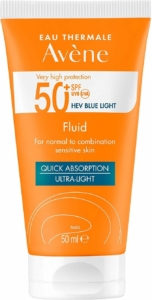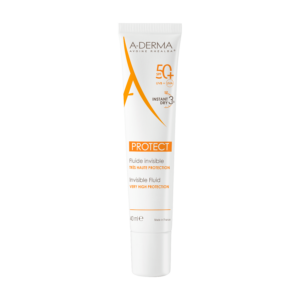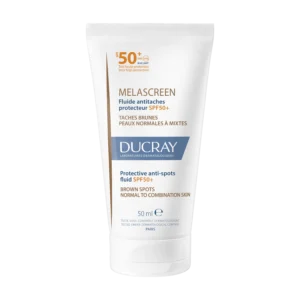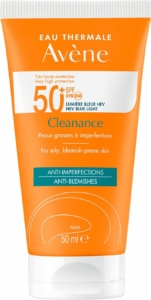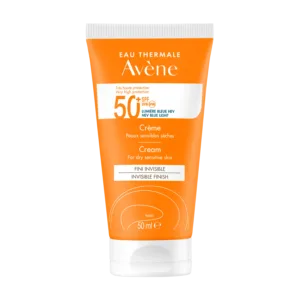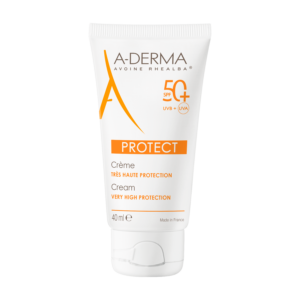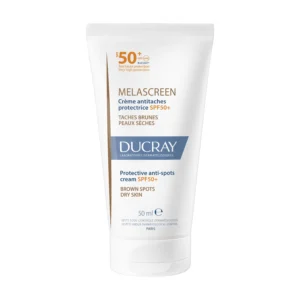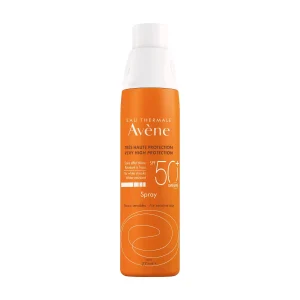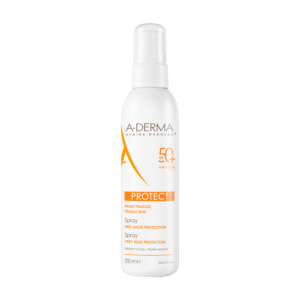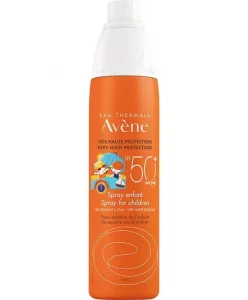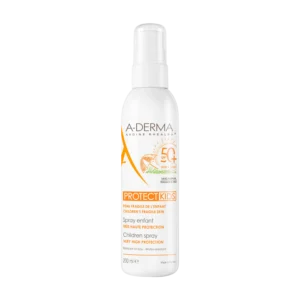
Have you ever heard that dark-skinned people don’t need sunscreen? You may think you’re protected from sun exposure and from the risk of developing skin cancer, but that’s not true. In this article from The Dermo Lab, we debunk this dangerous myth and explore ways to find the best sun protection for dark skin.
Why is sun protection for dark skin so important?
Before we look at why sun protection is important for dark-skinned people, you may be curious to know where the myth that dark-skinned people don’t need sun protection comes from.
This myth stems from the fact that dark-skinned people produce more melanin (the pigment that gives skin its color) than lighter-skinned people. Melanin helps protect the skin from the sun by absorbing and distributing harmful UV rays in the superficial layers, reducing the risk of cell damage that can lead to skin cancer.
While the increase in melanin in darker skin types offers some protection, it certainly doesn’t provide a complete barrier against sun damage or skin cancer.
In short, if you have skin, you need sun protection.
Whatever your skin tone, you need at least SPF 30 to protect your skin from harmful UV rays. We recommend everyone to wear SPF 50 sunscreen for the best protection against skin cancer.
If you don’t use sunscreen, your risk of skin cancer increases considerably. The absence of sunscreen can also lead to other undesirable skin problems in dark-skinned people, such as premature aging, sun spots, wrinkles and hyperpigmentation.
What to look for in sunscreen?
There’s a reason why sunscreen is recommended every day, rain or shine. In fact, there are several reasons: sunburn, cancer, fine lines and wrinkles are just some of the consequences of sun damage to the skin. Protection against harmful UVA and UVB rays is therefore important not only for the skin’s appearance, but also for its well-being. And don’t forget that you also need to protect your skin from blue light as well as UVA and UVB rays.
To make sure you choose the best sun protection for your skin type, there are a few points to check.
1- Broad spectrum
It’s important to look for a sunscreen that offers broad-spectrum protection against the sun’s rays. This simply means that your sunscreen is able to protect you against the dangerous UVA and UVB rays.
2- SPF 30 or higher
When choosing your sunscreen, look for products with an SPF of 30 or more. SPF is the abbreviation for “sun protection factor”, which indicates the amount of solar energy needed to cause sunburn on protected skin compared to unprotected skin.
An SPF 30 sunscreen filters out around 97% of the sun’s rays when applied correctly. However, it should be noted that even a very high SPF does not protect you completely. Be sure to reapply at least every two hours. If you spend time in the water, you may need to reapply more frequently.
3- Chemical or mineral
Sunscreens are generally available in chemical or mineral form. Distinguishing between the two forms is easy enough: mineral sunscreens use minerals such as zinc oxide and titanium dioxide, while chemical sunscreens use these active ingredients:
- oxybenzone
- avobenzone
- octisalate
- octocrylene
- homosalate
- octinoxate
The chemicals allow easy application to the skin and are less likely to produce a white layer when used. However, there are concerns about the effects of long-term exposure to these chemicals, both for humans and for aquatic life.
Research has shown that some chemicals are absorbed into the bloodstream. Further research is needed to determine the long-term effects of this chemical absorption.
In the meantime, the only ingredients recognized as safe and effective by the Food and Drug Administration (FDA) are zinc oxide and titanium dioxide, found in mineral sunscreens. Mineral sunscreens are ideal for people with sensitive skin.
It should be noted, however, that mineral sunscreens are more difficult to apply (they may take some time to penetrate) and are generally the cause of white marks.
Our choice of sunscreens:
For the face:
For normal to combination skin:
Eau Thermale Avène Very High Protection Fluid SPF 50+
A-Derma Protect Invisible Fluid SPF50+
Ducray Melascreen Protective Anti-Spots Fluid SPF50+
For oily and acne-prone skin:
Eau Thermale Avène Sun Cleanance Sunscreen SPF50+
For dry skin:
Eau Thermale Avène Very High Protection Cream SPF50+
A-Derma Protect Cream SPF 50+
Ducray Melascreen Anti-Spots Cream SPF50+
For the body:
Eau Thermale Avène High Sun Protection Spray SPF 50+
A-Derma Protective Spray SPF 50+
For children’s sensitive skin: (face + body)
Eau Thermale Avène Sunscreen Spray for Children SPF 50+
A-Derma Protect Children Spray SPF 50+
How can people of color protect their skin?
Since skin cancer can result from the long-term effects of sun damage, it’s important to protect your skin throughout your life. Here’s how:
- Wear sunscreen.
Everyone, including those with darker skin, should wear sunscreen every day. Applying a broad-spectrum sunscreen that blocks UVA and UVB rays can help reduce the risk of skin cancer. Sunscreen also helps prevent hyperpigmentation and premature aging of the skin, including wrinkles, sagging and age spots. We recommend a protection factor of 30 or higher.
Using a sunscreen tinted with iron oxide can be beneficial for colored skin, as it protects against the visible light spectrum, which plays a role in skin pigmentation disorders. There are also several transparent sunscreens that leave no ashy residue on the skin.
- Wear sun-protective clothing.
Whenever possible, wear long-sleeved shirts and long pants or skirts to protect your skin from UV rays. Hats are an excellent way to protect your head, face and eyes. Make sure your hat has a brim that protects your face, ears and neck. Stay in the shade as much as possible, especially when the sun’s rays are strongest, between 10 a.m. and 4 p.m.
- Make an appointment with a dermatologist.
If you notice anything new, changing or unusual on your skin, make an appointment with a dermatologist. Even before this appointment, a head-to-toe skin examination will give your dermatologist an overview of your skin and help him develop a plan for any necessary treatment or prevention strategies.
Myths and facts
Myth: Dark-skinned people don’t need to wear sunscreen.
Fact: Sunscreen offers extra protection against UV rays that can cause skin cancer, and is recommended for all skin types.
Myth: Skin cancer is less common in people of color.
Fact: It’s true that skin cancer is more common in lighter-skinned people. But people of color are more likely to die from the disease.
Myth: Skin cancer is the same for all skin types.
Fact: Skin cancer symptoms differ according to cancer type and skin color.
Myth: People of color don’t need regular skin cancer screening.
Fact: Everyone, regardless of skin color, should see a dermatologist.
Takeaway
Sunscreen is one of the most important forms of protection, regardless of skin type or color. However, for dark-skinned people, it’s very important to choose the right sunscreen to get the best possible coverage.
